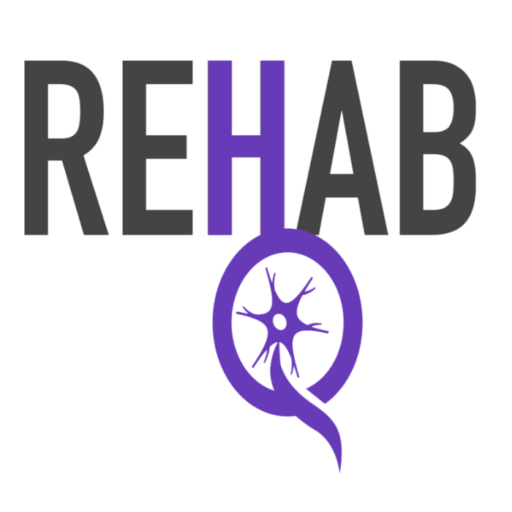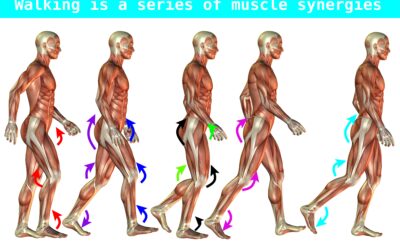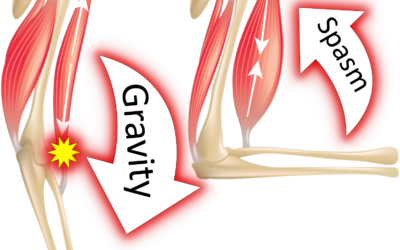Caring for a loved one who has suffered a stroke can be overwhelming, frustrating, lonely….you fill in the blank. In other words, it is not easy. My goal is to be able to provide you with helpful tips, tricks, and how-tos to make your life a little easier.
In the first few weeks you will have a TON to learn. Be patient with yourself and know that it does get easier. But laying a solid foundation will make the months ahead much easier. Here are my suggestions for the first things to tackle.
How do you care for a stroke patient?
Educate Yourself
Sometimes anxiety and getting overwhelmed is really the result of just not knowing. The unknown can be a scary place. That being said, learning about stroke and your loved one’s stroke-related problems and be a huge help. Take part in support groups. Most likely the closest major hospital offers this.
Participate in stroke rehabilitation
Attend therapy sessions as much as possible and ask lots of questions. As a therapist, I can tell you that we LOVE questions. We know that therapy is a 24/7 process and so we want to help you as much as possible with learning the therapy activities that your loved one should be performing at home. The biggest piece of advice I can give in this area is to find the balance between helping your loved one enough, but not too much. Having them work a little to be able to learn how to do things on their own is not only important for physical recovery but also helps mentally.
Assess your loved one’s needs, as well you your ability to meet them
- Help with activities of daily living (bathing, getting dressed, and grooming tasks)
- Manage medications as well as travel to doctor’s and therapy appointments
- Manage finances and insurance benefits
- Help the survivor with their rehab to regain their independence.
It is extremely important to keep in mind that you can’t do everything. And attempting to will surely lead to your own health problems. So be realistic with yourself and what you are capable of providing. I recommend starting with your strengths. If you are a “finance person” maybe take over the finance and insurance responsibilities. If you work in healthcare, maybe you will be better served at helping with the rehab activities. If you already work in management, maybe you can be the best help by being the one to “delegate”. In any case, think outside the box and get help in the areas where you feel the least comfortable. It will be money well spent, I promise. This might include hiring a part-time nursing aid to come in a few hrs a week to help with bathing. Or maybe hiring a case manager who can manage the insurance benefits, doctors’ appointments, and getting prescriptions for medications. Be creative and again, I can not stress this enough….a little bit of your help is way better than no help at all which is sure to happen if you grind both ends of the wheel for too long.
Be prepared for behavior and mood changes
Suffering a stroke is like your loved one has lost a piece of their former life. There is a grieving process that they are trying to navigate. Be patient and know that having strong emotions of anger, and sadness is a normal part of this process. A psychologist can be a critical asset to the medical team to assist with this. It is important to note that behavior and mood changes can also be due to the stroke. It is extremely important to be open with your medical doctor.
Be on the lookout for depression
30-50% of stroke survivors are diagnosed with depression. Depression can have a dramatic impact on your loved one’s recovery. Ask his or her doctor to provide you with a list of the signs to look for and the best treatment.
Know the risk factors for a second stroke
Stroke survivors are 50% more likely to have a second stroke. It is extremely important to do al that you can to address the lifestyle changes that are proven to decrease stroke risk.
- You can assist by cooking low fat, nutritious, balanced meals. Minimize simple sugars and sodas. The Wahl’s protocol is a great book that talks about the best foods for over brain health.
- Make your home a smoke free zone. Nicotine constricts blood vessels and should be strongly discouraged.
- Encourage movement: Any movement is better than no movement. For example, standing is better than sitting (if walking is difficult or impossible). Another way to move is to have your family member propel the wheelchair using one foot and one arm instead of you pushing them.
- Make sure your loved one keeps doctor’s appointments and takes their medication.
Seek help from outside sources
As I stated earlier, there are plenty of resources in the community to help:
- Meals on wheels: a meal delivery service
- Look for an adult daycare facility in your area. These can be an excellent way to give yourself some much-needed rest.
- Seek out the help of family and friends. You might be surprised who might be able to come to sit with your loved one, help with laundry, wash dishes, pick up groceries…etc. Every little bit helps 🙂
Related articles you might be interests in:
Discharged from therapy. What now?
So, you have been discharged from therapy. So, what now? For some, this is a positive step in the rehab process. Some will understand right away that this is progress. On the other hand, for others it can bring up all kinds of negative emotions. "Is my therapist mad...
Hemineglect after a stroke: When half the world is missing
hemineglect is a condition where someone loses the ability to attend to, sense, and/or perceive information on one side. This condition is also referred to as unilateral neglect, spatial neglect, and/or hemispatial neglect. Several neurologic condition can cause this...
Post Stroke Pain: Diagnosis and Treatment
Pain is a common symptom after a stroke. Unfortunately, pain can be a significant barrier to regaining function. In some cases, there is an identifiable cause related to a movement or a structural problem. The rehab team can identify this, prescribe the...
Brunnstrom Stages of Motor Recovery
The Brunnstrom stages of stroke recovery is one proposed model of how someone with hemiplegia will recover movement. It was developed by a physical therapist in the 1960s and proposes that this sequence of recovery falls into six loosely defined stages. The main...
What is a muscle synergy?
In the world of neurologic movement disorders, we talk a lot about "abnormal synergy patterns". And they kind of "get a bad rap" in how they can inhibit motor (movement) recovery. But functional muscle synergies are not necessarily a bad thing. Here we are going to...
What is spasticity?
Spasticity is an involuntary muscle contraction caused by a hyperexcitability of the reflex arc that occurs due to damage to the brain or the spinal cord. Huh?? Yeah, agreed. Ok, I get it, keep it simple. Did you ever wonder why your leg seems to spaz out for no...






